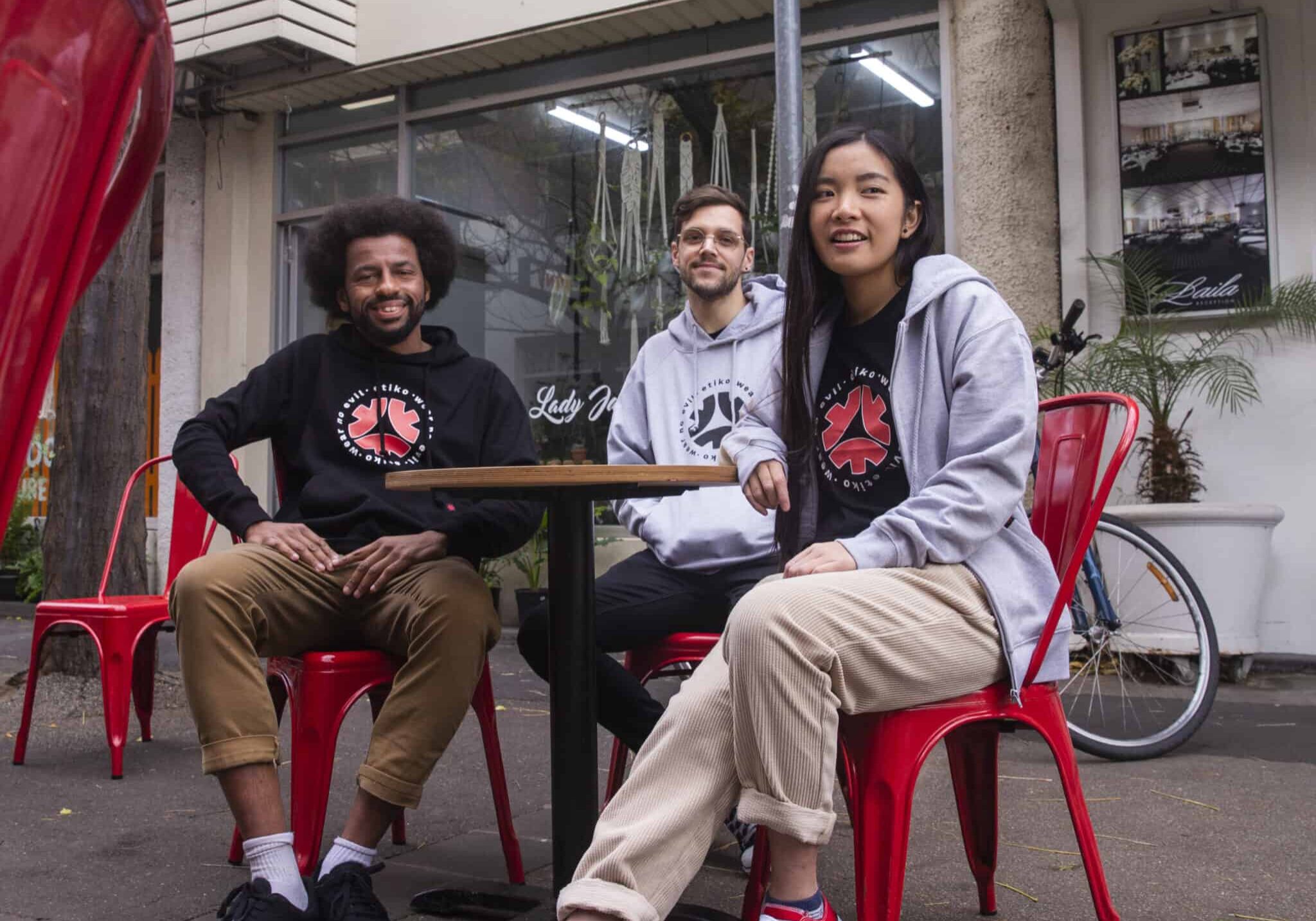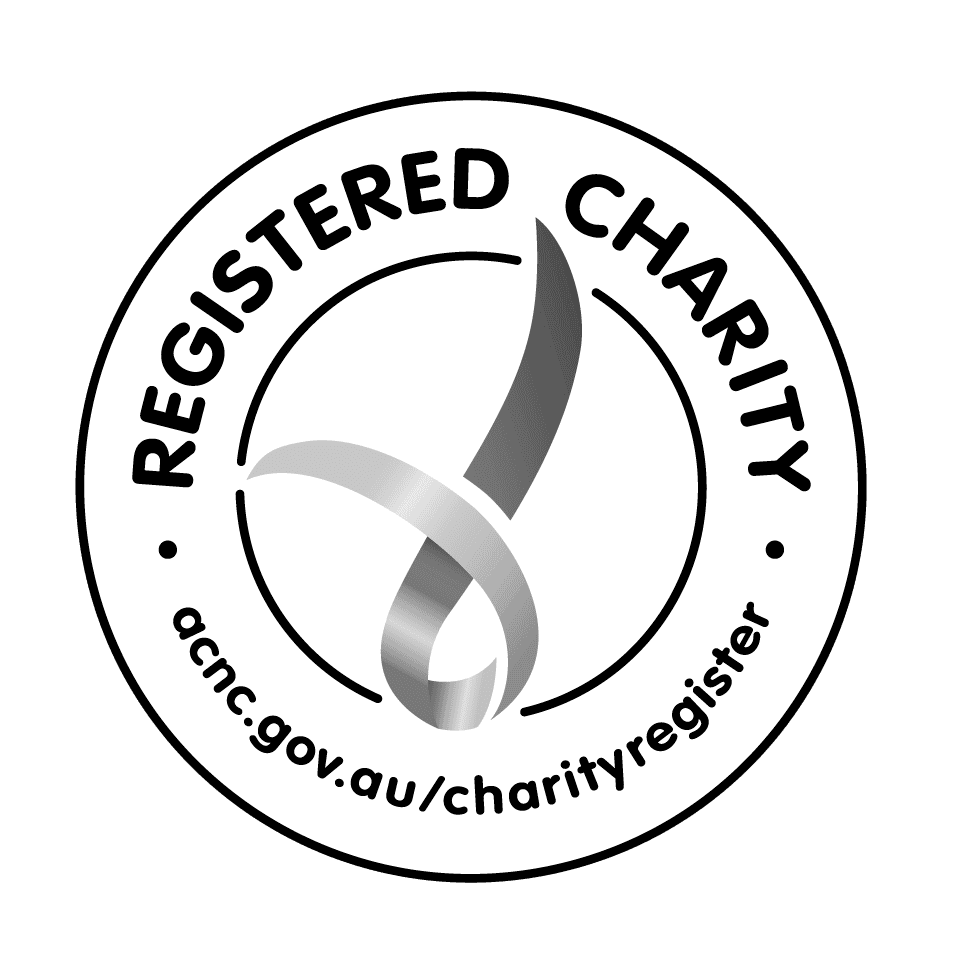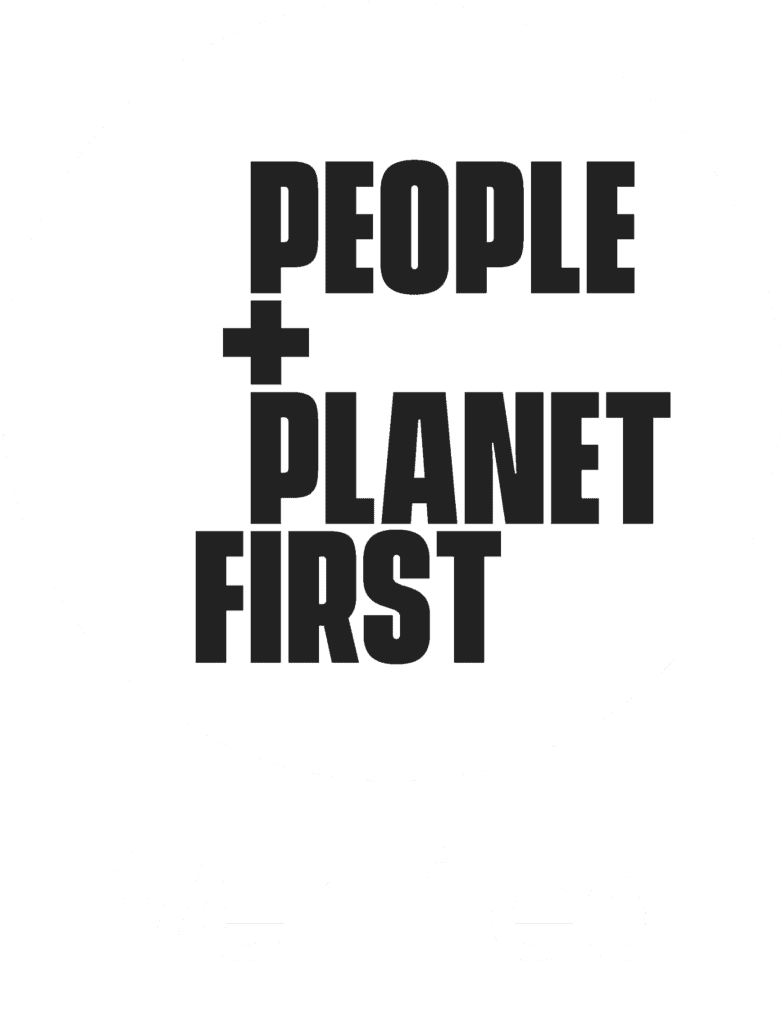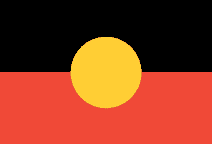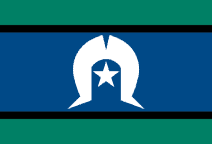In a world consumed by fast fashion, a Melbourne-based brand has carved out a niche offering a sustainable alternative.
Etiko was founded by Nick Savaidis in 2005 with a mission to create a line of clothing and footwear that respected the planet and supply chains.
Savaidis said when Etiko began, no one had really heard of ethical fashion – but in the years since its founding, Etiko has found its niche with a dedicated community of customers, all looking to reduce their clothing’s impact on the earth. The company is a registered social enterprise, a B Corp and Fairtrade (FLO) Certified. Its cardboard and paper is FSC certified, and where plastic must be used, its ensures the plastic is biodegradable and compostable. The clothes Etiko produce use 100 per cent organic cotton, and the rubber used in its shoes is natural. All products are also cruelty-free.
Etiko’s commitment to transparent and environmentally-friendly supply chains, sustainably sourced materials and carbon footprint reduction has earned it multiple awards, including Product of the Year – twice – at the Australian Fairtrade Awards, the Victorian Premier’s Sustainability Award, and most recently, Best All Round Sustainable Retailer at the NORA Retail Sustainability Awards.
The retailer has also been the highest-ranking brand in the Australian Ethical Fashion Report for every year that the report has been published, and was the first fashion brand to win the Business Category at the Australian Human Rights Awards in 2016.
Driven to make a difference
Savaidis has been working in the social enterprise sector for more than three decades. Earlier in his career while working in adult education in the remote Northern Territory, he set up small community-owned and run microbusinesses to support the First Nations communities in the area to find meaningful work.
After six years, he moved back to Melbourne and decided to set up his own “business for good”, inspired by the writings of environmentalist, author and entrepreneur Paul Hawken.
“He argued that, sure, businesses have contributed to harming the environment, but they also offered the opportunity to provide some solutions if there was a profit to be made from it. And that kind of makes sense to me,” Savaidis reminisced.
Having always been aware of exploitation within the fashion industry – Savaidis’ mother worked as a seamstress for piece rates after migrating to Victoria – Savaidis was naturally drawn back to the industry.
“Those piece rates were pretty minimal. I couldn’t understand why my mother was being paid 15 to 30 cents to make a garment which was being sold for $30 to $50. As a kid, you can’t do much about it.”
As a university student, Savaidis began hearing about the use of child and sweatshop labour in clothing production, and would go into shops to ask the retailers whether they could guarantee that their clothes were free of exploitation. He began wearing second-hand clothes. After graduating as a teacher, he had another epiphany when he noticed that schools would source their uniforms and sports gear from the cheapest retailer, without considering how the products were produced.
“I figured nothing was going to change unless consumers changed,” he said.
Etiko began when Savaidis picked up the distribution rights to No Sweat, the world’s first ethically made shoe brand. Within a year he had moved into producing his own footwear and clothing. In those early days, Savaidis relied on experts to guide him towards ethical manufacturers as he built his supply chain, learning what questions to ask and which factories to work with. Etiko developed a policy of only working with Fairtrade-certified manufacturers; in the beginning, there was only one. The retailer also sticks with its suppliers, working through any issues that arise. In the past, that has meant encouraging a factory in Pakistan to employ women if it wanted to retain Etiko’s business. The factory complied, and its workforce is now around 12 per cent female.
“Money… doesn’t talk, it screams. If a company knows that they’re going to make money by doing the right thing or lose money by not doing the right thing… they’ll make the effort,” Savaidis said.
“If more consumers insisted on the products they buy being ethically sourced… or eco-friendly, then companies would have no choice but to offer consumers an ethical, eco-friendly alternative.”
He said the discussion about ethical fashion at the time of Etiko’s founding was “in its infancy”, with very few Australians aware of the fashion industry’s problems. But the Rana Plaza collapse in 2013 changed that, bringing the issues to the forefront of people’s minds.
‘It was just so big, it was hard to ignore. The fashion industry started paying attention after Rana Plaza,” Savaidis said of the tragedy and its impact.
He’s pleased to see growing interest in the ethical fashion space, both on the side of consumers, and retailers, but noted that many eco and ethical retailers had folded in recent years.
Savaidis said there is often a disparity between what consumers say they care about, and what they actually do when it comes to making purchasing decisions – leading to the collapse of businesses that can’t generate a sustainable customer base.
Etiko runs “a pretty lean business model”, Savaidis said, which has helped it survive through tough times.
Still, his heart sinks when he sees mainstream fashion retailers offer t-shirts for less than $5.
“I think, what’s the point of doing what we do if we have to compete against companies like this who, despite all the knowledge, continue to sell clothing at dirt cheap prices when there’s no way you could actually do anything ethical or eco-friendly at that kind of price?”
Despite the ongoing cost of living crisis, Savaidis said Etiko’s online sales continue to grow. However, Etiko did have to close its physical store in Melbourne’s Brunswick last year due to declining brick-and-mortar customers and increasing rent.
Protecting integrity
Savaidis believes that third-party verification is vital to protect the ethical fashion industry from greenwashing. For consumers, he said that means asking what accreditations a retailer holds, and which of those accreditations are credible.
He said the eco-ethical community in Australia is still small but is slowly growing. Etiko has around 27,000 people subscribed to its newsletter, and that number is increasing too. Its returning customer rate is over 52 per cent.
He is passionate about educating people about ethically produced fashion, and believes businesses have a role to play in this space by sourcing their products – like corporate uniforms, stationery and marketing collateral – from credible, accredited, ethical suppliers.
“We… need organisations in this kind of space to start thinking about their own procurement. I have spoken to other people in the social procurement area, [and] there are some real concerns about how much business is actually out there. We’re finding it pretty challenging to actually get organisations that talk about social procurement to actually get into it,” Savaidis said.
To get consumers to make the switch to Etiko, Savaidis credits author Timothy DeVinney with instilling in him a new ethos: make products affordable, make them good quality, make them accessible, and make them cool. Etiko has been practising this and has seen positive results, with orders coming not just from Australia, but from international customers too.
Proving that good business works
Savaidis said Etiko has proven that “you can run a fashion label without compromising your values”.
He’s pleased with the growth of the community of ethical consumers that Etiko has been able to build, and with the number of customers who keep coming back.
But he would like to see Etiko grow bigger.
The business is about to bring on its first investors and is actively looking to scale up.
“We’re a bit different from other social enterprises in that we don’t get grants, we don’t get donations. We just rely on our income to do our work. That’s going to hold us back, but it’s also meant that we’ve been able to stick to our mission,” Savaidis explained.
There are new products in the pipeline, using new sustainable materials, with anticipated launches before the end of the year. And there are plans to promote social procurement to other businesses and government departments.
Savaidis said anyone looking to get into the ethical fashion business should do careful research about which practices are actually ethical and sustainable. The existing community of ethical retailers can help, and Savaidis himself often gives advice to newcomers.
“I couldn’t have done what I’ve done without standing on the shoulders of people who’ve gone before me,” he said.
